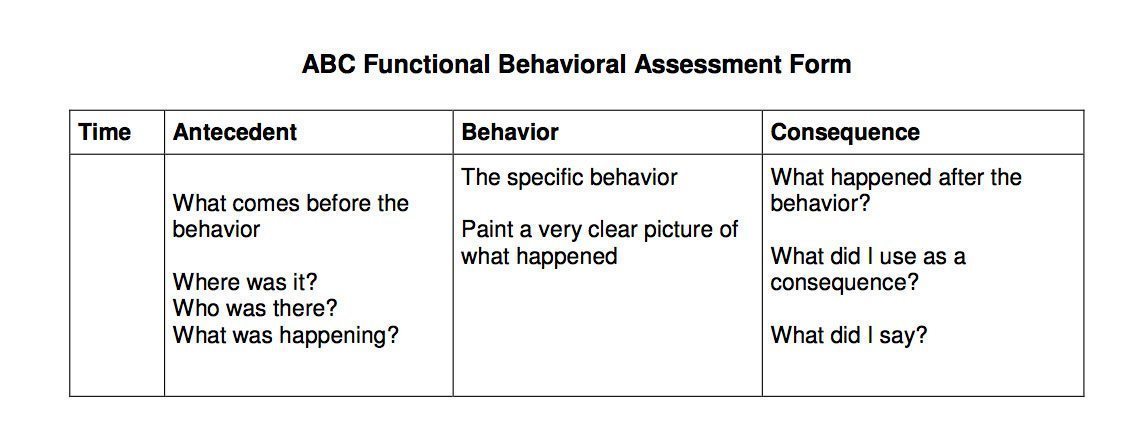
Self-Control: Learn What It Is & How To Handle It To Succeed
Have you ever felt a lack of self-control that prevents you from achieving your goals? Perhaps you feel that you can’t handle your anxiety or anger? Do you have problems controlling your emotions, thoughts, or impulses? W If your answer is yes, this article on self-control techniques and improvement might interest you.
What is Self-Control?
Self-control is the ability that lets us control our emotions, our impulsive behavior, and impulses, allowing us to reach our goals and objectives. Self-control is necessary to successfully perform most of the facets of our life, such as studying, working, educating, and maintaining our relationships.
We could say that self-control is like a thermostat whose function is to maintain our balance and stability, both internally and externally. When it works properly, it helps us control the impulses and desires that keep us from our goals.
For example, if you want to pass an exam, you need to stay at home studying. For this, you must control the impulse to go out and see your friends. Another example would be to tell your boss everything he does wrong and how he causes you job stress but in order to keep your job, you need self-control.
The Importance of Self-Control
It has been proven that people with high self-control are often the most successful people in life. Researchers found that people with greater self-control may have brains that function more efficiently. This suggested that those with self-control may have extra willpower because it takes them less effort to exert it. This is due to the influence emotions have on the decision-making process and how they also guide our behaviors, impulses and our lives.
The problem is that when we want something, we need to get it right away. When we don’t get it, we stress and experience negative emotions, making it difficult for us to handle our emotions or control our anger.
Self-control, therefore, is a complex cognitive process that requires the presence of other previous skills in order to develop.
More specifically, before we can develop our self-control, we need to: Learn to identify our emotions, understand them, and then be able to control and regulate them, and with that, regulate our behavior. This gives you control to own your decisions, behaviors, and impulses, by this you will be able to decide how, where, and when to channel them. In addition, we must learn to cope with other interfering aspects such as stress created by negative emotions and thoughts, which makes it much more complicated.
Repression Vs Self-Control
It is important to keep in mind that self-control and repression are not the same, and are commonly confused. Self-control requires awareness of the emotions, understanding them and acting accordingly to manage and control them. On the other hand, when we talk about repression, we are referring to hiding the emotions, to eliminating them, not paying attention to them, and waiting for them to disappear as if by magic, which won’t happen.
Here is an example for you to better understand what we mean: “You are feeling angry and you think that you would hit anything that was within your reach, but you can’t do it at that moment and you must control yourself”.
For this, you can follow two paths:
- Self-control strategy: To become aware of what you are feeling, accept it, and try to create an opposite emotion through strategies such as the evocation of quiet memories, or distracting yourself with anything that reduces the intensity of the emotion. This helps reduce your impulses and increase your self-control.
- Repression strategy: Tighten your fists, without being aware of what is happening to you, and think constantly about hitting something until it would be destroyed.
The difference between the two terms is evident, just as the effects each generates. For this reason, in this article, we not only want to teach you not to let yourself be driven by your impulses but also to manage them properly.
If an emotion, such as anger, becomes trapped inside us, without being able to understand and regulate it, that anger and fury will take over our thoughts and behaviors. It will make us irritable making it very difficult to reach our goals. Instead, if we can control the anger we feel at a given moment, our mood will change, making it easier for us to achieve our goals.
Here are the key steps that will help you improve your self-control. This is not a simple task, which is learned in a day but requires patience, effort, dedication, and time to develop.
Self Control: Identifying Your Emotions
As we have been saying throughout the article, the key to handling our impulses lies in the control, understanding, and management of our emotions and thoughts.
The problem is that on many occasions we are not aware of the repercussions that this can have when managing or controlling our impulses. We run the risk that our emotions and thoughts take control of our behavior, moving us further away from our goals. Let’s not forget that our emotions are also related to the quality of the decisions we make each day.
For this reason, it is important that we learn to identify our emotions and become aware of them. If we succeed, we will have taken the first great step towards our self-control. We can say that there are two types of emotions: Primary emotions and secondary emotions.
The primary emotions are universal
These are joy, fear, anger, sadness, disgust, surprise, etc. Most people are able to identify them without much trouble. We know their physical manifestations perfectly and what they mean when we feel them. For example, when we are happy our body seeks positive experiences, and when we are sad, our body disconnects.
Secondary emotions are more difficult to identify
This is because they are a result of several primary emotions. Their manifestations are not as obvious and clear. This means it’s necessary that you identify all your emotions and know what effect they have on our thoughts, behaviors, and physical manifestations.

For this reason, it is necessary that you identify all your emotions and know what effect they have on your thoughts, behaviors, and physical manifestations.
Once you have learned this, you will be able to understand what happens to you every moment and act accordingly. You will be able to have self-control, reduce intense emotions and handle and regulate the “negative physical waste” that certain emotions leave behind, such as anxiety.
For example, anxiety arises from the combination of fear and guilt or shame. If we experience anxiety, we will be able to identify those thoughts that cause fear, guilt, or shame, and we can work to change them. Thus, instead of not being able to control it, abandoning the first attempt and doing something that we don’t want, we can reduce the emotion, and successfully overcome the situation.
Self-Control: Manage Your Emotions
As we have been saying throughout the article, emotions play a strong role in self-control. If we can manage them, we will be able to control them. Therefore, we will be able to increase our self-control. Here are some tips to improve your self-control:
Identify and define the emotions you are feeling.
To do this, you can use a technique that I call “personal emotion book“. When you are in a situation that makes you feel an emotion that you find difficult to control, fill out the following questions in a small notepad:
- How would I label the emotion I just felt?
- What physical manifestations does it produce?
- What thoughts did I have?
- How have I dealt with the situation?
Writing this down will help you internalize it. In addition, you will have the possibility to consult it when you consider it necessary. On the other hand, it can also help you document all the different emotions that you experienced and how they manifest. Therefore, later you can compare it with other emotions that are harder to identify.
Comprehend the emotions that you are feeling
To do this, you can use a technique that I call “Unravel the Enigma“. This should always be done when the “Personal Emotion Book” technique has been done previously.
In your notebook you will:
- Make a list that includes the different circumstances that might have caused an emotion, and try to identify the one that triggered the emotional reaction.
- Try to think what purpose did the emotion have and why did it appear.
- Think thoroughly about the whole experience and try to comprehend and accept it.
Regulate your emotions
This is the last step to achieving self-control. The task is to find other activities or ways to reduce emotional states and symptoms. It is about finding what you do well to regulate your emotions and your behaviors. Some tricks to regulate intense emotional states are
- If you find it difficult to create thoughts and emotions that compensate for the pain caused by an impulse that can’t be satisfied, one of the main tricks is to distance yourself from the situation. Try to distract yourself from it and it will be easier for you to reduce the stress it generates. For example, you can go out for a walk, or leave the place for a few minutes, until you feel ready to face it.
- Test yourself. Each experience is a good opportunity to learn to improve your self-control. Try to be aware of what happens inside you and around you in the different situations of your life. Pay attention to the different results you get by acting differently in several situations. You can similar chart to the one below and fill it for each situation.
- Make small records that reflect the situation that caused the emotion, what you thought and how you acted. This will help you identify those dysfunctional responses, and create new alternatives.
- Finally, it is very important to be patient, and that you understand that this is not an easy task, so you should not be frustrated while trying.

If you follow these steps you will become closer to achieving self-control.
This will help you develop a more balanced and happy life because remember that your happiness depends on the way you interpret and face reality, and that is something that is only in your hands. Finally, I leave you with a video about self-control and long-term and short-term goals that could be very useful.














